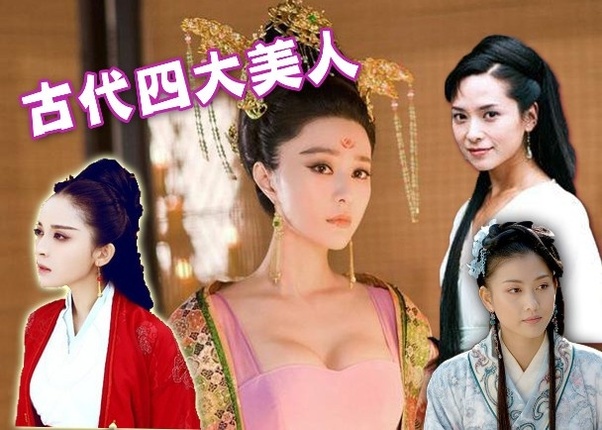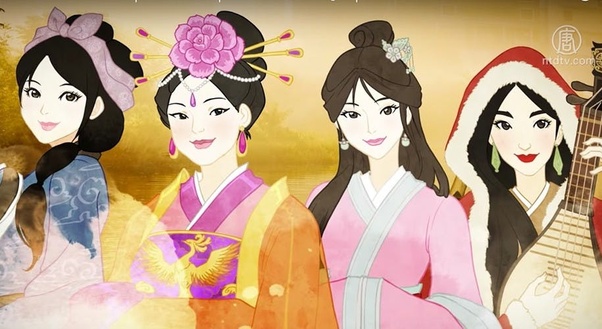“沉鱼落雁” is a Chinese idiom that describes a woman’s extremely beautiful appearance. In fact, “沉鱼落雁” is a highly poetic and expressive idiom in Chinese, used to praise a woman’s unparalleled beauty.

Literally, “沉鱼” (chén yú) means “fish sink” and refers to the scenario where fish forget to swim and sink to the bottom of the water when they see “her” beauty.
“落雁” (luò yàn) means “wild goose fall” and describes the situation where wild geese forget to fly and fall to the ground when they catch sight of “her”.
Together, “沉鱼落雁” (chén yú luò yàn) is used to praise a woman’s exceptional beauty.

The idiom originates from the “Zhuangzi: The Equality of Things” (《庄子·齐物论》), an ancient Chinese philosophical text. The original text describes that Mao Qiang and Li Ji, both renowned beauties, cause different reactions in animals when they are seen: fish dive deep into the water, birds fly higher, and deer run swiftly.
Hence, in sentences, “沉鱼落雁” is often used as a predicate, object, or attributive to describe a woman’s beauty. It can also be used alone or in conjunction with other idioms like “闭月羞花” (bì yuè xiū huā), which also describes a woman’s beauty.
Synonyms and Antonyms
- Synonyms: “倾国倾城” (qīng guó qīng chéng), “如花似玉” (rú huā sì yù), “国色天香” (guó sè tiān xiāng), etc.
- Antonym: “其貌不扬” (qí mào bù yáng), which means someone is not physically attractive.